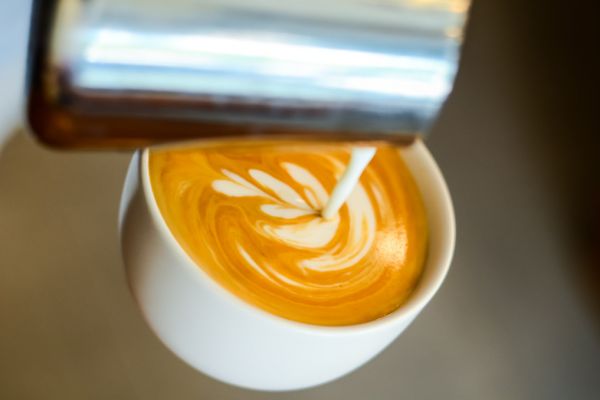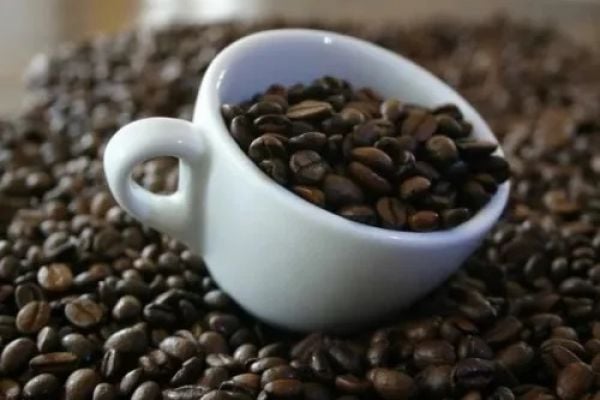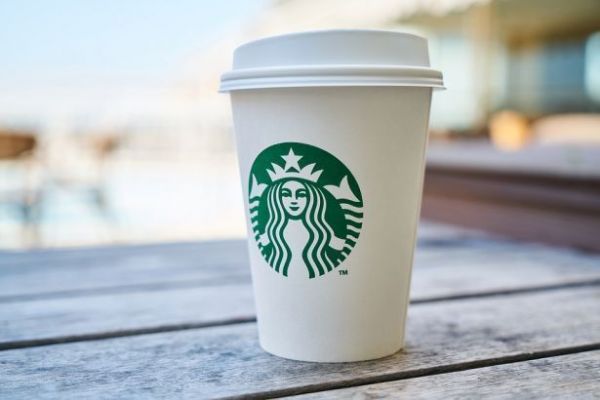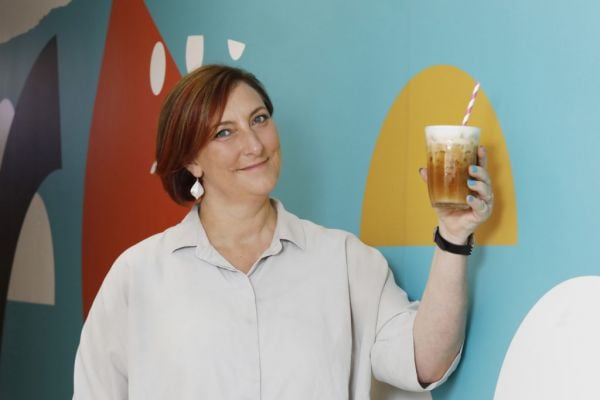From high-street chains to local micro-roasteries down to the local bar, coffee standards continue to improve in Ireland. The World Barista Championships will take place in the RDS next year and Ireland will take its place on the world coffee map. Hospitality Ireland speaks to barista champion Natalia Piotrowska about the difference between a weak cup and a classic roast, and how it all comes down to training.
The coffee scene in Ireland has come a long way in just a few short years. At home, we’re still very much a tea-drinking nation – according to a report by Euromonitor and the World Bank, Ireland is second only to Turkey for tea consumption, taking in an average of 4.8lbs of tea per person a year. But speciality tea shops, although growing, are still a rarity in the country, whereas more and more coffee outlets are appearing on our streets, offering a wide range, for the aficionados as well as the casual drinker.
A report by Mintel showed that in total the retail coffee market in this country was valued at €111.8 million and growing year on year. It predicted that through thriving markets such as the pods/capsules sector, the market is well positioned to grow by 20 per cent by 2018. As well as retail coffee, the hospitality sector is adapting to the demand. Dedicated coffee shops – and not just cafés that serve coffee – are still a relatively new phenomenon. Outlets where hot beverages are the main source of income and not ancillary were probably not seen as profitable businesses some years ago but as recent statistics have shown, the coffee business is good.
Bord Bia’s Irish Foodservice Channel Insights report showed the value of coffee shops to the foodservice market. “The quality of the coffee is increasing, driven by higher adoption of filter brewing across a range of venues beyond coffee shops, including hotels, catering and restaurants,” read the report. “Consumer tastes have changed. Coffee is becoming an everyday luxury, so quality is critical. It is also a very social product; consumers have a strong connection to it. Specialty coffee beverages and other specialty coffees are seeing higher sales than in the past, driven, in part, by a greater prevalence of coffee shop locations.” The Bord Bia report found that consumer spending in coffee shops in 2014 was worth a total of €345 million to the Irish economy, a 2.5 per cent increase on the previous year.
One major aspect that the report highlighted is the increased interest in better quality. Due to its increasing popularity, consumers are starting to demand more for their money. “Premiumisation for coffees is also a key trend within the channel and is driven by higher consumer awareness of different brewing techniques, such as filter and French press. Examples of this trend include a selection of 'Third Wave' coffee outlets in Dublin and elsewhere." This ‘premiumisation’ trend is evident in both the quality and variety of coffees available now. And the hospitality industry is catching on. In restaurants, where a coffee was so often just something to sit on the table while the bill was perused, coffee is now offered in all varieties. Publicans are replacing their kettles and jars of instant for €20,000 Gaggia machines.
However, it’s no good having a Steinway grand piano if nobody can play it. Equally, the best coffee-making equipment in the world will not cover up a lack of knowledge and bad practices from staff who haven’t received the correct training to create a great coffee. The barista knowing the difference between a latte and a flat white can be the difference between a sale for a business and a customer going elsewhere. Well-trained staff who can do the simple things such as machine maintenance all the way up to the advanced stuff such as latte art, can add some extra interest to a business, even if it is not the main source of income. A pub that can serve a great coffee with a bit of flair during the day could increase footfall in the typically-slow afternoon hours.
One person who realises the importance of proper techniques and practices is Natalia Piotrowska, founder of Coffee Consultancy Events (www.coffeeconsultancyevent.com), a Co. Mayo-based company which offers education, expertise, advice and training for individuals, coffee shops, restaurants and hotels in Ireland and abroad. Natalia has had a busy 2015, setting up the business in the last few months after representing Ireland in the World Barista Championships in Seattle in April this year. Prior to that, Natalia beat off some stiff competition to be crowned the Irish Barista Champion at the Catex catering event in February this year. For Natalia, there were two major moments that sent her on the path to being a barista champion. Despite working in hospitality, Natalia had never fully understood the importance of good coffee practices until she went for her first coffee training course with her job five years ago.
“It was just basic training, getting to know all the coffee equipment, etc. This is when I first realised that there is a lot more involved than just pressing the button,” says Natalia, but it was her first taste of something special that really made her take it seriously. “The major moment for me was probably two years ago when I went to a specialty coffee shop and I tasted a really good coffee for the first time. This was the first time I tasted something really different and something that I didn't even realise existed. I don't really drink wine but I assume that's what wine drinkers get when they taste their first really good wine – that 'wow factor'."
The World Barista Championships, which took place in the Seattle (the ‘spiritual home’ of coffee) taught Natalia to be more ambitious in her pursuits. “It was the first appearance for me on the world stage, so it was a huge experience. The main thing I brought back was not to be afraid of presenting your own ideas and putting them in front of other people. Going on the world stage you realise how much you know, and how little you know; how much you can learn. You're in a training room with other champions over there, it's like a workshop where you learn all the little tricks that these champions have. It's a privilege to learn from these other people as well as representing your country.”
Similar Trajectory
From learning basic techniques to representing Ireland at a global level in just five years, Natalia’s career has taken a similar trajectory to the coffee scene in Ireland over the last few years. Ireland and Dublin particularly, is now seen as one of the leaders in coffee excellence throughout the world. Global travel media site Matador Network ranked Dublin fourth in the world’s best cities for coffee lovers. The article read: “Dublin is a city known to imbibe — mostly alcohol, not coffee. But the boozy city is taking to cafe culture, most shops opening in the city center — Dublin 2 most of all.” The mandatory hat- tip to our drinking culture aside, it’s high praise for the city, finishing ahead of Oslo where coffee is as ubiquitous as frigid temperatures, and the Paris café couture. And Dublin will get its chance to show just how far it has come as it will host the World Barista Championships at the World of Coffee event in June next year – which Natalia is currently practising for.
For Natalia, the big difference is the level of dedication involved on the coffee scene. Similar to the craft beer market in Ireland, she has seen more and more people coming on to the scene wanting to improve the quality available. “The major changes I've seen are the growth of specialty coffees, micro-roasteries, even home coffee brewers, just the amount of people who are really passionate and want to do really great coffee. We have a lot to learn from other countries but we're on a good route. Ireland is pushing towards a great trend of using really good equipment and methods. Each time someone goes abroad, it's good for Ireland as they are able to bring something back and we are able to improve as a country.”
The late Paolo Tullio often bemoaned the lack of coffee expertise in his adopted country. Speaking not long before his death, the ever-witty critic said:”It’s the unfortunate truth that a lot of poor practices are still being used by ill-trained staff. If you get a proper espresso in a glass cup, the crema should be roughly the same proportion to the coffee as the head on a glass of Guinness. It’s common here to pay €3 for an espresso then find it doesn’t have any head at all. Most say nothing, but if handed a Guinness without a head on it they’d say ‘I’m not drinking that. Take it back.’” Coffee ‘pet hates’ are often the reason people refuse to purchase coffee in certain establishments, but Natalia says it’s just a matter of basic training and knowledge.
“It's not about being fussy, but there are some places that just don't realise the importance of the process. You can see people doing really bad things. Even for example on the training courses, people ask after they extract the coffee can they press the button again, it's just things like that that show a lack of knowledge. Simple things like using the same cloth for the table and the steam wand or using milk that's been standing there for half an hour or longer for making another coffee. It's more the hygiene things that turn me off, rather than little fussy things."
Investment
Of course, bad habits can be easily fixed, and from speciality coffee shops to local pubs, business owners are starting to realise this and send their staff on training courses as well as investing in better machines to provide it. Natalia has noticed just how far hospitality businesses have come in her short time in the business. “The majority of coffee shops getting better equipment is something I've seen in the last few months and over the year. I think people are starting to understand the importance, or maybe have the financial power, to get better equipment. Also, we can see more of the staff being trained; I've never seen so many people interested in coffee training before than this year, it seems to be something we're moving towards. We're going to see more and more people getting their skills up to that level.” Just like a chef who can present a dish in an attractive way or a bartender who can mix a good cocktail, a barista who is well trained can help any hospitality business, and the Irish coffee scene is brewing up a storm.











